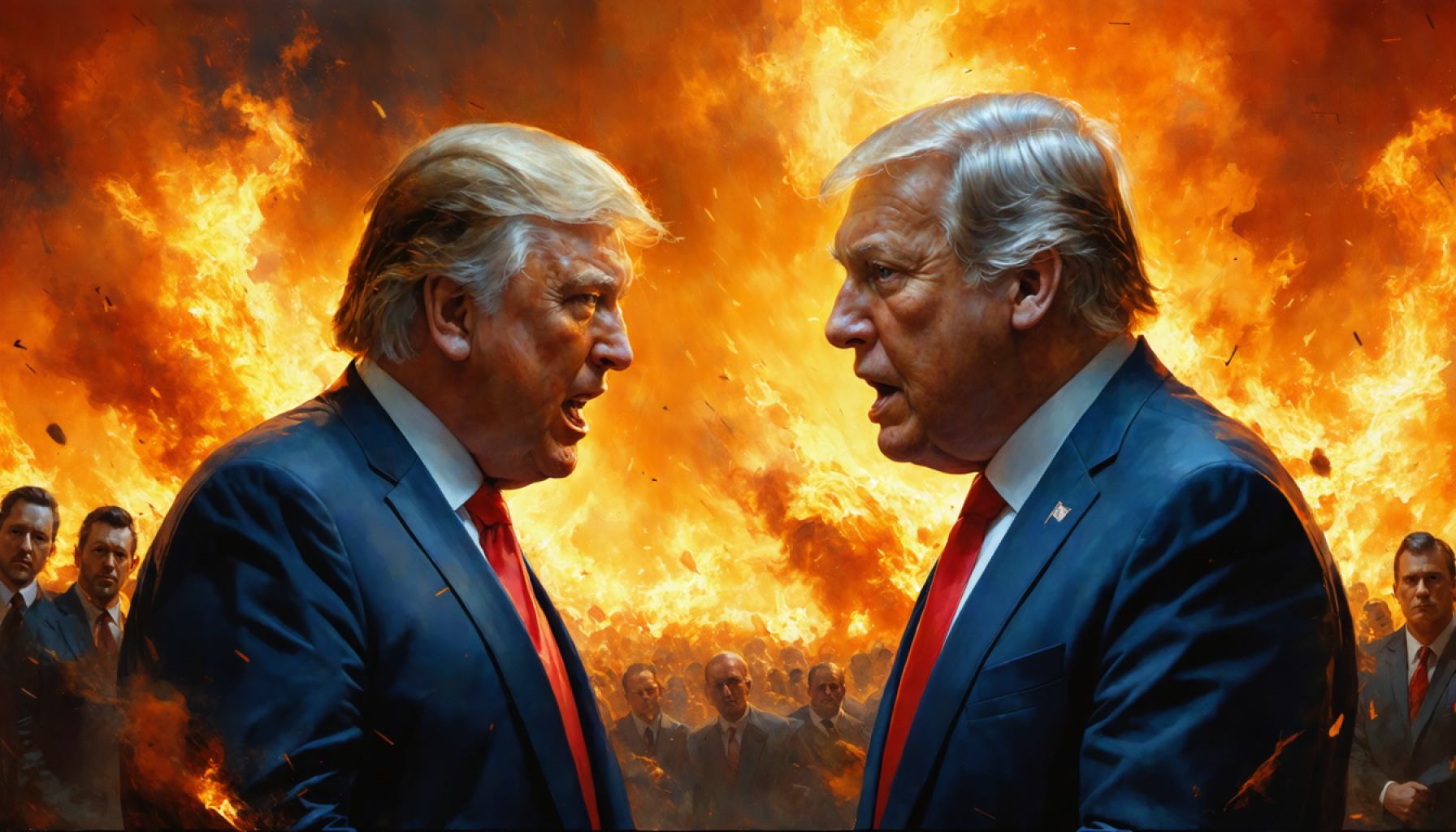- The “All In” podcast featured a heated debate between David Sacks, the first U.S. “crypto czar,” and former Treasury Secretary Larry Summers.
- The central topic was China’s entry into the WTO and its impact on American job losses, with opposing views from Sacks and Summers.
- Sacks criticized past policy decisions, arguing they led to a massive shift of manufacturing jobs to China and economic displacement in the U.S.
- Summers defended the globalization strategy, asserting it was necessary for international commerce.
- The exchange highlighted the differing backgrounds and views of Sacks, a tech industry libertarian, and Summers, a seasoned economist.
- This debate underscores the complexities of past economic policies and the need for balanced, forward-thinking decisions in today’s dynamic landscape.
A vortex of verbal crossfire erupted during a recent episode of the “All In” podcast, drawing attention from political and tech aficionados alike. David Sacks, the nation’s initial appointee as “crypto czar,” spearheaded by former President Donald Trump, clashed with former Treasury Secretary Larry Summers over a decades-old economic Pandora’s box: China’s entry into the World Trade Organization (WTO).
The conversation, initially framed around the massive exodus of American manufacturing jobs to China, soon ignited tensions. As Sacks dissected this seismic shift, attributing blame squarely on the shoulders of past policy decisions, he painted a vivid picture of economic displacement across the American heartlands. Thousands, if not millions, of jobs were relocated overseas, he argued, as the U.S. opened its doors to Chinese manufacturing prowess—a decision he claimed Summers supported during his tenure as Treasury Secretary.
But Summers, unfazed, swiftly countered, claiming Sacks was distorting historical realities. It was a sparring match not just of words but of two divergent visions of economic strategy. Summers, defending the globalization drive, saw it as a necessity in the dance of international commerce, a narrative Sacks was keen to debunk as careless oversight.
What added a particular richness to this exchange was the juxtaposition of their backgrounds: Sacks, a Silicon Valley veteran with libertarian inclinations and ties to influential figures like Elon Musk, versus Summers, a seasoned political economist rooted deeply in the historical fabric of U.S. financial policy. Sacks’s fervent criticism was a reflection of his own journey—one that saw him evolving from endorsing Trump’s outliers to championing Silicon Valley’s shift toward a more conservative paradigm.
The fireworks revealed more than just professional discord; they underscored a pivotal era of political realignment and technological evolution. It also placed Sacks at the forefront, not just of crypto policy, but potentially the entire tech-political landscape in a rapidly changing nation.
Key Takeaway: As the debate concluded, listeners were left with a pungent reminder of the complexities and consequences of past economic decisions. In the modern era, the need for balanced, forward-thinking policy decisions grows ever more critical, a task for which new leaders—like Sacks—are being scrutinized and prepped on an expansive, and increasingly volatile, stage.
Unlocking the Economic Debate: The Clash Over China’s WTO Entry and Its Impact
The Historical Context and Impact
The debate between David Sacks and Larry Summers about China’s entrance into the World Trade Organization (WTO) encapsulates a critical moment in global economic history. China’s accession to the WTO in 2001 was a monumental step in fostering global trade, but it also accelerated the offshoring of American manufacturing jobs. According to a report by the Economic Policy Institute, the U.S. lost 3.7 million jobs to China between 2001 and 2018, with manufacturing bearing the brunt of these losses. This shift fueled economic disparities and called into question the long-term benefits of globalization.
The Economic Strategies at Play
– David Sacks’s Perspective: Asserts that globalization, driven by policies during Summers’s tenure, led to significant economic displacement. He argues for a reversal of these trends, advocating for policies that prioritize American industry.
– Larry Summers’s Defense: Emphasizes the inevitability of globalization and the benefits it brought, such as lower consumer prices and increased market access for U.S. companies.
Controversies & Limitations
One of the central criticisms of WTO-induced globalization is its disproportionate impact on different economic classes. Lower-skilled workers faced job losses while skilled professionals and multinational corporations benefited from cheaper goods and expanded markets. This disparity has fueled political discontent and calls for more protectionist policies.
Real-World Use Cases
1. Revitalizing Local Economies: Regions affected by job losses, like the Midwest, are investing in technology and green energy sectors to create new employment opportunities.
2. Supply Chain Resilience: Recent global events have highlighted the need for more resilient supply chains, possibly reversing some offshoring trends.
Market Forecasts & Industry Trends
– Reshoring of Manufacturing: With rising geopolitical tensions and supply chain disruptions, more companies may consider bringing manufacturing back to the U.S. According to a 2022 survey by Deloitte, 62% of executives are considering reshoring certain operations over the next few years.
– Technological Adaptations: Advancements in automation and artificial intelligence could offset labor costs, making domestic manufacturing more competitive.
How-To Steps & Life Hacks for Navigating Economic Shifts
1. Invest in Skills Training: Adapt to new job markets by focusing on technology and automation skills.
2. Support Local Enterprises: Engage with local businesses that prioritize domestic manufacturing.
3. Advocate for Balanced Policies: Encourage policymakers to consider the social implications of economic policies on different demographics.
Conclusion and Actionable Recommendations
While the debate between Sacks and Summers underscores divergent views on globalization, it highlights the need for nuanced economic strategies that balance global competitiveness with domestic prosperity. For individuals and businesses, the current economic landscape offers opportunities to adapt and thrive by embracing technological advancement and advocating for policies that support sustainable growth.
For further insights into economic policies and trends, visit IMF or The Economist.
This discussion is a reminder to remain informed about global economic shifts and how they might impact personal and professional landscapes. By staying engaged and proactive, stakeholders can better navigate an increasingly complex economic environment.
